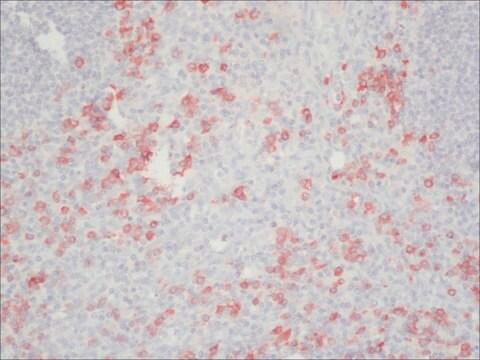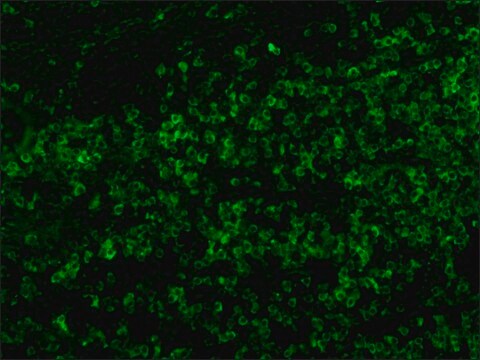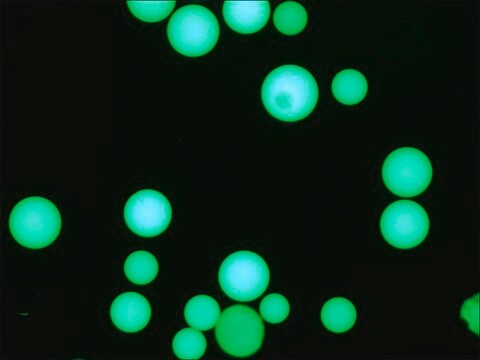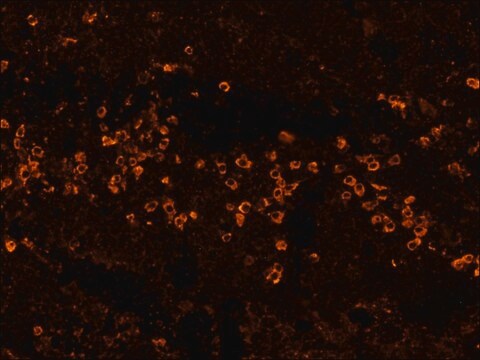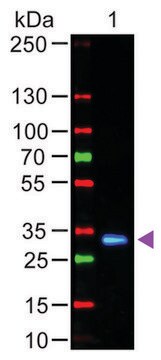SAB3701281
Anti-Human IgG (Fc specific), highly cross adsorbed-Fluorescein antibody produced in goat
affinity isolated antibody, lyophilized powder
Synonym(e):
FITC
About This Item
Empfohlene Produkte
Biologische Quelle
goat
Qualitätsniveau
Konjugat
fluorescein conjugate
Antikörperform
affinity isolated antibody
Antikörper-Produkttyp
secondary antibodies
Klon
polyclonal
Form
lyophilized powder
Speziesreaktivität
human
Methode(n)
direct immunofluorescence: suitable
indirect ELISA: suitable
indirect immunofluorescence: suitable
Versandbedingung
wet ice
Lagertemp.
2-8°C
Posttranslationale Modifikation Target
unmodified
Verwandte Kategorien
Allgemeine Beschreibung
Spezifität
Immunogen
Physikalische Eigenschaften
Physikalische Form
Rekonstituierung
Haftungsausschluss
Sie haben nicht das passende Produkt gefunden?
Probieren Sie unser Produkt-Auswahlhilfe. aus.
Signalwort
Danger
H-Sätze
Gefahreneinstufungen
Acute Tox. 3 Dermal - Acute Tox. 4 Oral - Aquatic Chronic 2
Zusätzliche Gefahrenhinweise
Lagerklassenschlüssel
6.1C - Combustible acute toxic Cat.3 / toxic compounds or compounds which causing chronic effects
WGK
WGK 3
Flammpunkt (°F)
Not applicable
Flammpunkt (°C)
Not applicable
Analysenzertifikate (COA)
Suchen Sie nach Analysenzertifikate (COA), indem Sie die Lot-/Chargennummer des Produkts eingeben. Lot- und Chargennummern sind auf dem Produktetikett hinter den Wörtern ‘Lot’ oder ‘Batch’ (Lot oder Charge) zu finden.
Besitzen Sie dieses Produkt bereits?
In der Dokumentenbibliothek finden Sie die Dokumentation zu den Produkten, die Sie kürzlich erworben haben.
Unser Team von Wissenschaftlern verfügt über Erfahrung in allen Forschungsbereichen einschließlich Life Science, Materialwissenschaften, chemischer Synthese, Chromatographie, Analytik und vielen mehr..
Setzen Sie sich mit dem technischen Dienst in Verbindung.

